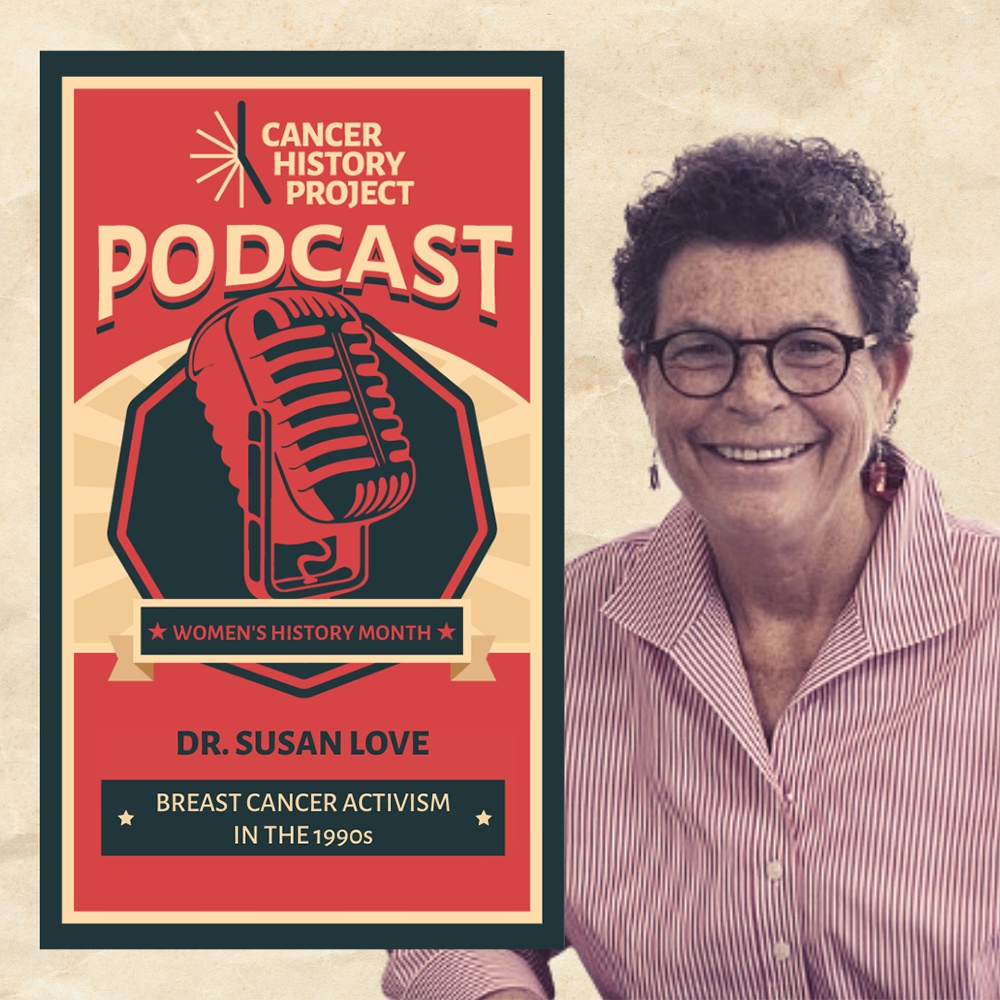This March, the Cancer History Project is commemorating the legacies of women in oncology during Women’s History Month.
The Cancer History Project has created a women in oncology tag to archive the contributions of women in oncology.
The following women were movers and shakers of their time, and contributed to the development of cancer institutes, the funding of cancer research, and the science of cancer—decades prior to the development of the National Cancer Program.


- Anna Gray to the Rescue
By Fox Chase Cancer Center | March 1, 2022
Anna Gray brewed up some tea at her home outside Philadelphia and invited a few friends to join her for a cup. But she had more on her mind than friendly conversation.
The year was 1933, and the Great Depression gripped the country. But Gray, a mover and shaker in Philadelphia society, wasn’t looking for help. Instead, she was hoping to give it: to a friend, oncologist Stanley P. Reimann.
Gray had learned that Reimann’s Lankenau Hospital Research Institute for the Promotion of Cancer Research was nearly penniless, and if something wasn’t done soon, years of painstaking study to find a cause and cure for cancer would crumble with it.


- Anna Jeanes: A Founder’s Dream Fulfilled
By Fox Chase Cancer Center | March 2, 2022
In 1947, a hospital created by Quaker philanthropist Anna Jeanes sold some of its land to the institute that would one day become Fox Chase Cancer Center. Now, more than 70 years later, Jeanes’s vision of a cutting-edge facility dedicated to compassionate care for cancer and other long-term diseases is coming to full fruition as Fox Chase and Jeanes Hospital continue to reintegrate as part of the Temple University Health System.
Anna Thomas Jeanes was born April 7, 1822, in Philadelphia. Her family was devoutly Quaker and gained its fortune primarily through its ownership of coal-rich lands. None of her siblings had children, so as the youngest, Anna inherited the entire family’s wealth.
Anna Jeanes was a small woman—less than 100 pounds—with little formal education, but she had a strong passion: to help those less fortunate. Working with Booker T. Washington and others, she dedicated more than $1 million to support rural schools.


- Cancer Program Advocate Mary Lasker, 93, Prodded Government, Scientists For Cures
By The Cancer Letter | March 4, 1994
Besides being regal in manner, Mary Woodard Lasker, who died last week at 93, undertook benevolent projects on a scale fit for royalty:
In 1943, Mrs. Lasker and husband, advertising mogul Albert Lasker, launched a campaign that in effect created the American Cancer Society on the foundation of an organization of physicians many of whom were reluctant to take up the cause of cancer research.
Having created a mammoth voluntary organization, the Laskers forced into lobbying for increasing federal funding of research. This led to an unprecedented boost in funding of National Institutes of Health. Subsequently, Mrs. Lasker’s lobbying led to the enactment of the 1971 National Cancer Act and subsequent increases in funding for the cancer program.
The Laskers also established an award whose recipients frequently go on to win the Nobel Prize. Altogether, 51 scientists who won the Lasker award became Nobel laureates.
Quote of the week
Medical research is a gift—a legacy that we leave for the next generation. The beauty of our National Cancer Program is that we have all lived to see its gifts—the seven million Americans whose lives have been saved.
Mary Lasker 1991 statement on the impact of the National Cancer Act


- Eva Noles, RN, lived her life believing “where there’s a will, there’s a way”
By Roswell Park Comprehensive Cancer Center | April 26, 2021
Eva Bateman had more than one reason to celebrate in 1939 when she graduated from the School of Nursing at Buffalo’s E. J. Meyer Memorial Hospital. She was the first person of African descent to achieve that distinction, and she ranked first academically in a class of 100.
But when she and her date entered the dining room of the Park Lane Hotel for the graduation dinner-dance, they didn’t get far. A line of waiters moved toward them and quickly ushered them out, advising them that the hotel did not serve African Americans.
In 2009, at age 90, Eva Bateman Noles shrugged at the memory. “If you’ve been hurt all your life, you get used to another hurt,” she said.


- Helen Coley Nauts: The Woman Who Resurrected Cancer Immunotherapy
By Cancer Research Institute | April 1, 2021
Helen Coley Nauts, the founder of the Cancer Research Institute (CRI), was a high school-educated housewife and mother who, from the time of her father’s death in 1936 until her own passing in 2001, would go on to fundamentally change the fields of cancer research and immunology.
Her determination and perseverance in the face of constant resistance from the medical establishment of her day laid the foundation for cancer immunotherapy as it is known today. For her contributions, Helen was named Commandeur de l’Ordre National du Merite by French president Valéry Giscard d’Estaing in 1981, and received the Gold Medal for “distinguished service to humanity” from The National Institute of Social Sciences in 1997—the first woman in the medical field to do so since the honor was bestowed upon Marie Curie in 1921.
Listen to the Cancer History Project podcast, featuring Susan Love
In honor of Women’s History Month this March, this week’s podcast features an interview with Susan Love, founder and chief visionary officer of the Dr. Susan Love Foundation for Breast Cancer Research.
In this discussion, Love overviews the breast cancer advocacy movement of the 1990s, and how she and others helped educate breast cancer advocates about the disease.
“Really this was, ‘we want to be at the table. We want to be making the suggestions and making sure they happen, not just marching around wearing pink,’ and I think that made a big difference,” Love said.
A transcript of the interview with Love appears here. Listen to the podcast here.
This column features the latest posts to the Cancer History Project by our growing list of contributors.
The Cancer History Project is a free, web-based, collaborative resource intended to mark the 50th anniversary of the National Cancer Act and designed to continue in perpetuity. The objective is to assemble a robust collection of historical documents and make them freely available.
Access to the Cancer History Project is open to the public at CancerHistoryProject.com. You can also follow us on Twitter at @CancerHistProj, or follow our podcast.
Is your institution a contributor to the Cancer History Project? Eligible institutions include cancer centers, advocacy groups, professional societies, pharmaceutical companies, and key organizations in oncology.
To apply to become a contributor, please contact admin@cancerhistoryproject.com.











